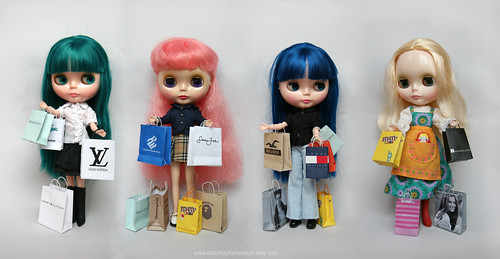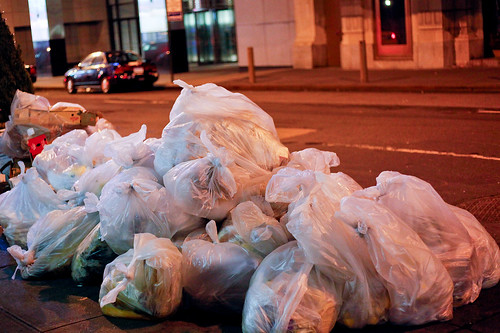It's Day 28 of the Spending Fast, and I have a serious case of retail cravings. That's right... I actually have a tremendous urge to buy something. This is appalling to me. How did it become so hard-wired in my system to be a consumer that I would feel withdrawal pangs after just a few short weeks of a spending sabbatical?
I spoke briefly on the topic of advertising, how it's everywhere and how nothing that needs to be advertised is a necessary buy. And yet, here I am, feeling like it's been too long since I "treated" myself to a purchase. The very realization disgusts me. Blech.
As gross as it is to realize how much consumerism has affected my life, it's not all that surprising to find it difficult to break away from it. To not spend money is like saying "f*** you" to every advertisement you see on TV, on the web, before Youtube videos, on the sides of buses, on billboards, on our phone when we play Words with Friends, and so on. It's completely counterculture, against what the majority of people around us do, against what the majority of our information media tells us to do. We are programmed by such saturation to believe we really need more things to be happy.
But that only means we will then need bigger spaces to accommodate those things, and ultimately that means we need more money to afford all of that. And the prices of products start to rise because we keep using up the resources needed to make those products, thereby driving up raw costs. And then we need to buy more items to fix these things when they break, clean them when they're dirty, store them when they're not in use (you wouldn't need all those plastic containers if you didn't have any junk to put in them, would you?), and a final resting place for them when you are finished with them. In order to make more money to buy more things, we take on more workload, more hours at the office, more schooling to get more degrees to have more career options...and more debt. It's a very ugly descent, if you think about it.
Plain and simple: The less you buy, the less you need to clean (and by supplies to clean them, and throw out the packaging), the less you need to fix (and buy supplies to fix it), the less you need to store (meaning you don't need to rent storage or you can downsize you living space), the less you throw away (so you're helping the environment and reducing demand for items so new ones don't have to be made from our limited resources), and ultimately you spend less. This saves you time! That means you can work less and do more of what you want to do.
Francine Jay (Miss Minimalist) mentioned something in her book "The Joy of Less" that rattled me and will stick with me forever: she asked readers to imagine tying one end of a string an item you own, and then tie the other end to a part of your body. Imagine doing this for literally every single item. This includes every sock, every fork, every pen, every bathroom product, every DVD, everything packed in those boxes in your attic. Would you feel trapped and weighed down by your possessions? Jay's book goes on to explain in further detail how to pare down your stuff so you can help lift that burden. It's a short read and I highly recommend it for anyone anywhere who buys things (in short, everyone).
It's thinking about this string method that keeps my retail bug at bay. I am not planning to go so extreme that I never buy anything ever again, but it will make me think twice about future spending choices. If I'm going to vote with my dollars, I'm going to save them for what is really important to me. It will take a lot of self-control to avoid going shopping as soon as April 1st rolls around, but like all bad habits, they take time to modify. My goal is to break my consumerism habit, no matter how weird my friends and family and co-workers think it may be.
Why do you feel compelled to buy things? Do you think hard about each and every purchase you make, and how it affects not only your bank account, but also your state of mind, your feeling of freedom, local and national prices, or the environment?


